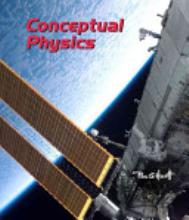
|
MWF, 10-10:50 |

|
MWF, 10-10:50 |
Physlink News
National Geographic
Extended Description:
The first part of the course focuses on the atomic nature and physical properties of solids, liquids, and gases. For example, the role of Archimedes' Principle on atmospheric phenomena will be discussed. The course continues with thermodynamics: the extension of some of the mechanical concepts covered in PHYS 101 to include heat flow. This was a key achievement of the 17th century and helped drive the Industrial Revolution. We continue with a description of wave phenomena, focusing particularly on sound waves. We end with several weeks on electricity and magnetism, a crowning achievement of 19th century physics that has lead to the modern age of communication.
The course is primarily conceptual in nature, using only simple high school algebra to help illuminate the underlying physical phenomena. Simple numerical and conceptual problems will be assigned in homework sets, and use of a calculator will be helpful but not essential.
Instructor: Jim Imamura
Office: 444 Willamette Hall (or 441 Willamette Hall)
E-mail: imamura@uoregon.edu
Phone: 541-346-5212
Office Hours: MW, 2-3, TuTh, 10-11:30, or by appointment
Course: Physics 102: Conceptual Physics,
PHYS 102 is a science group satisfying course (<3) |

|
Grading:
HW/Projects
Lecture Notes:
Section 2:
Chapter 11: 2012/04/02,2012/04/04
Chapter 12: 2012/04/06,2012/04/09
Chapter 13: 2012/04/09,2012/04/11,2012/04/13
Chapter 14: 2012/04/13,2012/04/16
Section 3:
Chapter 15: 2012/04/20,2012/04/23
Chapter 16: 2012/04/25,2012/04/27
Chapter 17: 2012/04/27,2012/04/30,2012/05/02
Chapter 18: 2012/05/07,2012/05/09
Section 4:
Chapter 19: 2012/05/09,2012/05/11,2012/05/14
Chapter 20: 2012/05/16
Chapter 21: 2012/05/18
Section 5:
Chapter 22: 2012/05/23,2012/05/25
Chapter 23: 2012/05/30,2012/06/01
Chapter 24: 2012/06/04,2012/06/06
Chapter 25: 2012/06/06